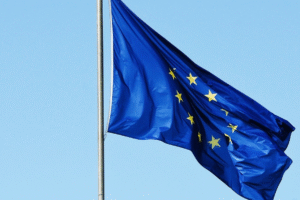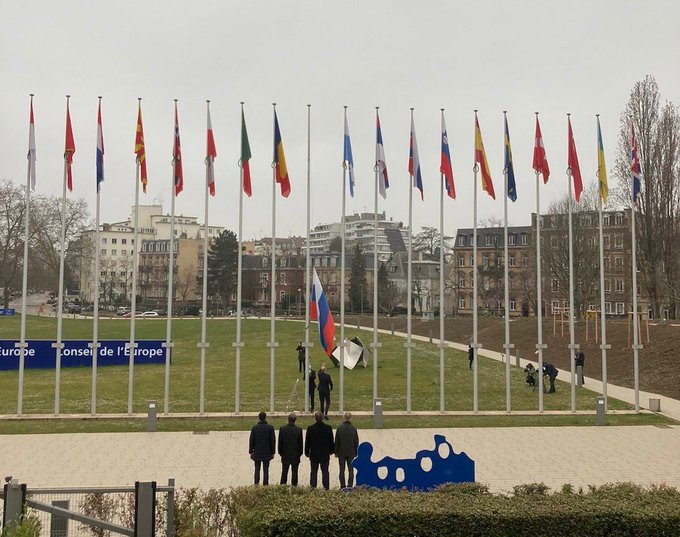
Mar 17, 2022 | Advocacy, News
People across Russia will lose crucial human rights protections as a result of the Russian Federation’s expulsion from the Council of Europe following its military aggression against Ukraine, the International Commission of Jurists (ICJ) warned today.
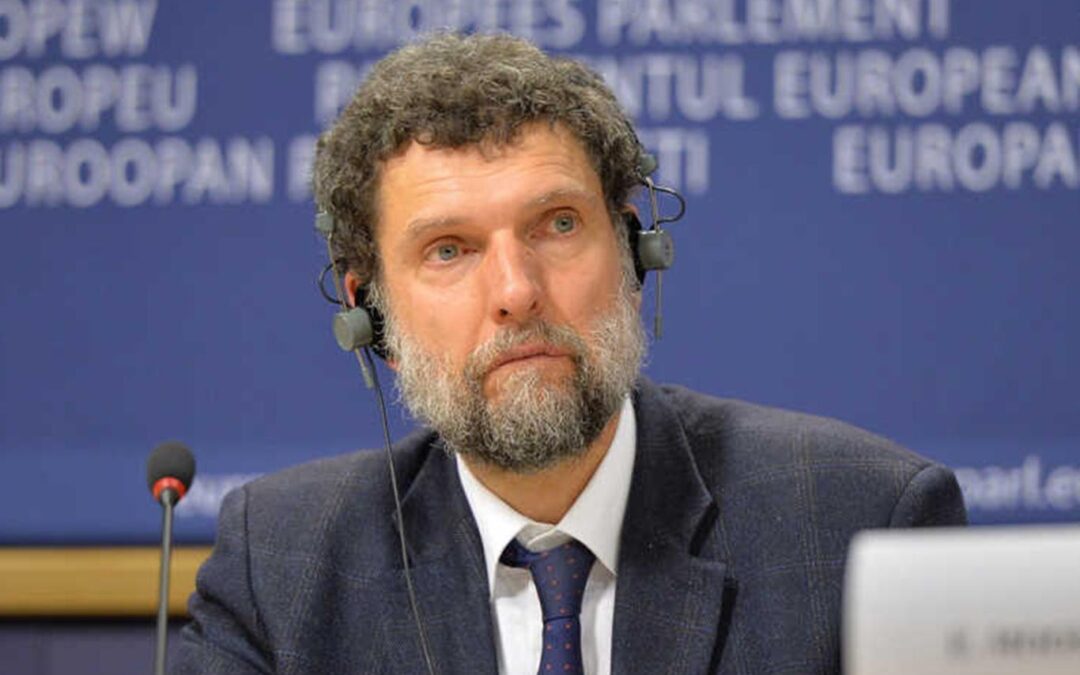
Sep 13, 2021 | News
The Council of Europe Committee of Ministers should trigger infringement proceedings against Turkey at its September 14-16, 2021 meeting for its failure to implement the European Court of Human Rights’ (ECtHR) judgment ordering the release of the jailed human rights defender Osman Kavala, Human Rights Watch, the International Commission of Jurists, and the Turkey Litigation Support Project said today.
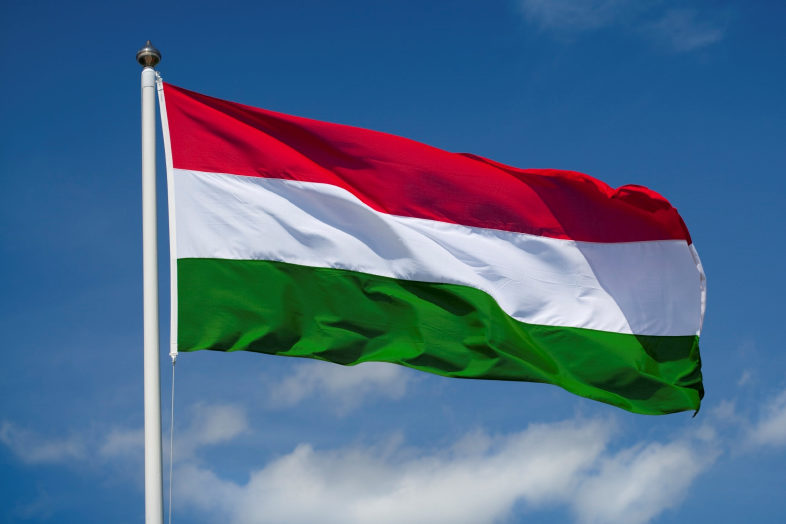
Nov 18, 2019 | News
The ICJ today called on the Hungarian authorities to desist from instigating disciplinary proceedings threatened against Judge Csaba Vasvári, a judge of the Central District Court of Pest and a member of the Hungarian National Judicial Council.
The imminent threat of disciplinary action is a consequence of a preliminary reference Judge Vasvári made to the Court of Justice of the European Union.
“Judge Vasvári faces disciplinary action as a direct result of his request for a preliminary ruling of the Court of Justice of the EU on the very question of judicial independence in Hungary. This is an extremely concerning attempt to interfere with the independence of a judge in discharging his judicial function which, if it proceeds any further, will set a dangerous precedent.” said Róisín Pillay, Director of the ICJ’s Europe and Central Asia programme.
A motion to begin disciplinary proceedings against Judge Vasvári was brought by the Acting President of the Budapest Regional Court in October, following Judge Vasvári’s request in criminal proceedings before him last July, for a preliminary ruling the Court of Justice of the EU (CJEU) under Article 267 of the Treaty on the Functioning of the European Union (TFEU).
In the request to the CJEU, Judge Vasvári raised questions regarding compliance with the principle of judicial independence under Article 19.1 of the Treaty of the European Union (TEU), in particular the appointment procedures for court presidents, and remuneration for judges, as well as questions regarding the right to interpretation in court.
Following a decision of the Hungarian Supreme Court in September that the reference was contrary to Hungarian law since it was irrelevant to the case, disciplinary action against judge Vasvári was sought on the grounds that in making the reference, he violated the requirement to conduct himself with dignity and refrain from action which would undermine the dignity of the judiciary.
The motion for disciplinary proceedings is now expected to be considered by a panel of the Service Court, which will decide if disciplinary proceedings will commence.
“The actions of Judge Vasvári in making a preliminary reference to the CJEU were an entirely legitimate exercise of his judicial functions in accordance with EU law. It is essential that judges are able to use all appropriate judicial avenues to address and uphold the rule of law, including to protect the right to a fair trial and the independence of the judiciary” said Róisín Pillay. “It is also necessary for the proper application of EU law, that judges are able refer questions to the CJEU under Article 267 of the Treaty without undue hindrance.”
The ICJ recalls that under international standards on the independence of the judiciary, judges must decide matters before them impartially, without any restrictions, improper influences, inducements, pressures, threats or interferences, direct or indirect, from any quarter or for any reason (Principle 2, UN Basic Principles on the Independence of the Judiciary). Council of Europe Recommendation CM/Rec (2010) 12 of the Committee of Ministers specifies that “the interpretation of the law, assessment of facts or weighing of evidence carried out by judges to determine cases should not give rise to civil or disciplinary liability, except in cases of malice and gross negligence.”
The UN Basic Principles on the Independence of Judiciary (principle 8) also affirm that “members of the judiciary are like other citizens entitled to freedom of expression, belief, association and assembly; provided, however, that in exercising such rights, judges shall always conduct themselves in such a manner as to preserve the dignity of their office and the impartiality and independence of the judiciary.”
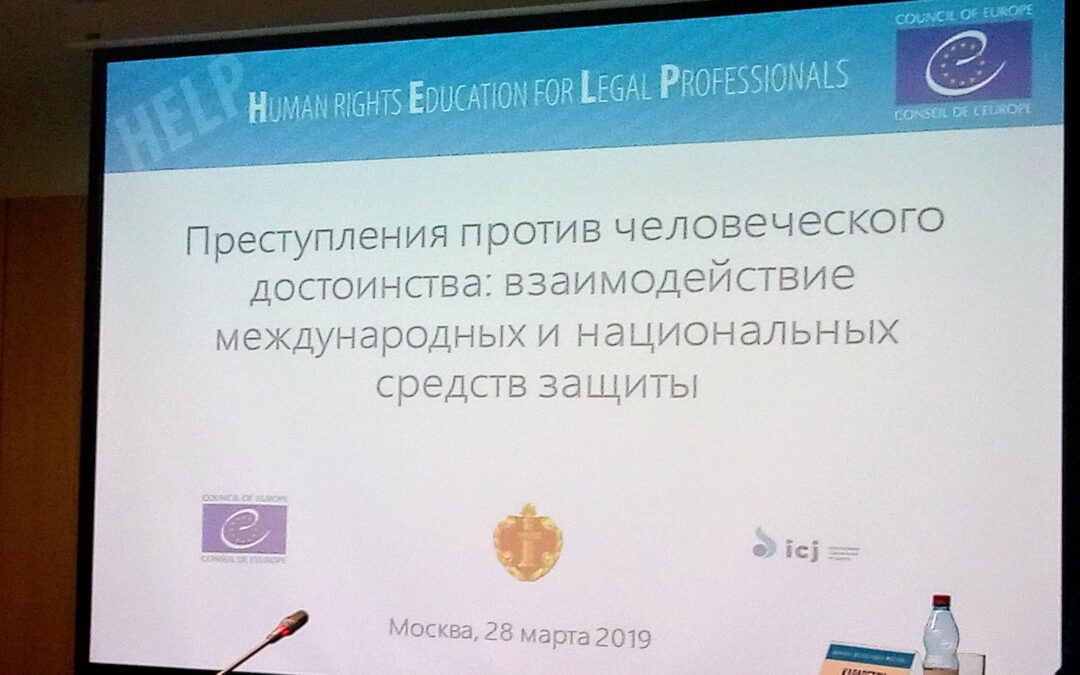
Mar 28, 2019 | Events, News
The ICJ is co-operating in a conference organized by the Council of Europe and the Federal Bar Association of Russia on “Crimes against Human Dignity: Interaction of International and National Remedies”, which will take place today, 28 March 2019 in Moscow.
The Conference will address crimes that affect physical and moral integrity of a person, notably through ill- treatment, domestic violence, trafficking in human beings and other forms of modern slavery. The core provisions of the European Convention on Human Rights and the related case-law of the European Court of Human Rights are of particular relevance in combatting these phenomena. The Conference will address national and international remedies against such crimes and serve for exchange of good legal practices in that regard.
Mikhail Lobov, Head of Human Rights Policy and Co-operation Department of the Council of Europe, Yuriy Pilipenko, President of the Federal Bar Association, Denis Novak, Vice-Minister of Justice of the Russian Federation, Radmila Dragichevich Dichich, Vice-President of the International Commission of Jurists, Judge of the Supreme Court of Serbia, Ilya Subbotin, Deputy Director of the Depratment of Paneuropean Co-operation of the Russian Foreign Ministry and Petr Sich, Head of Council of Europe Programme Office in the Russian Federation will open the Conference.
The Conference will give an overview of identification and qualification of crimes against human dignity, as well as of assessment of evidence and investigation of such violations. Special attention will be paid to such questions as professional training of practicing lawyers as a factor of strengthening of remedies’ efficiency and, in more general terms, the role of advocates in the framework of the Council of Europe conventions.
The event will take place on 28 March 2019 at 09.30 a.m., in Moscow, Hotel “Azimut Smolenskaya”, Smolenskaya street, 8.
The agenda for the conference is available here
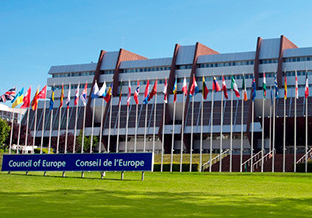
May 17, 2018 | Events, News
Today, the ICJ is co-sponsoring a conference in Copenhagen to mark the conclusion of the Danish Presidency of the Council of Europe, and take stock of its contribution to protection of human rights in the Council of Europe region.
The conference, Copenhagen, Elsinore and the Future of Europe: Assessing the Danish Chairmanship of the Council of Europe is organized by iCourts and the University of Copenhagen in collaboration with the Danish Chairmanship of the Committee of Ministers of the Council of Europe, the Danish Ministry of Foreign Affairs, the ICJ and the Danish Institute for Human Rights.
This conference will assess what has been achieved during the Danish Chairmanship – and what can still be achieved at the final high-level conference in Elsinore where the Ministers of Foreign Affairs of the 47 member states will meet and are scheduled to adopt a decision on the future of the Council of Europe. The conference will focus on the priorities of the Danish Chairmanship, including:
- Reform of the European Court of Human Rights and the Copenhagen Declaration
- Equal opportunities
- Involvement of children and young people in democracy
- Changing attitudes and prejudices about persons with disabilities
- Combating torture.
At the conference, the ICJ will present its analysis of the recent Copenhagen Declaration on the future of the European Convention on Human Rights system, and its recommendations for how its conclusions and recommendations should be taken forward.
The programme is available here: http://jura.ku.dk/icourts/calendar/copenhagen-elsinore-future-of-europe/







